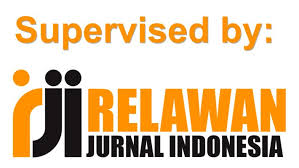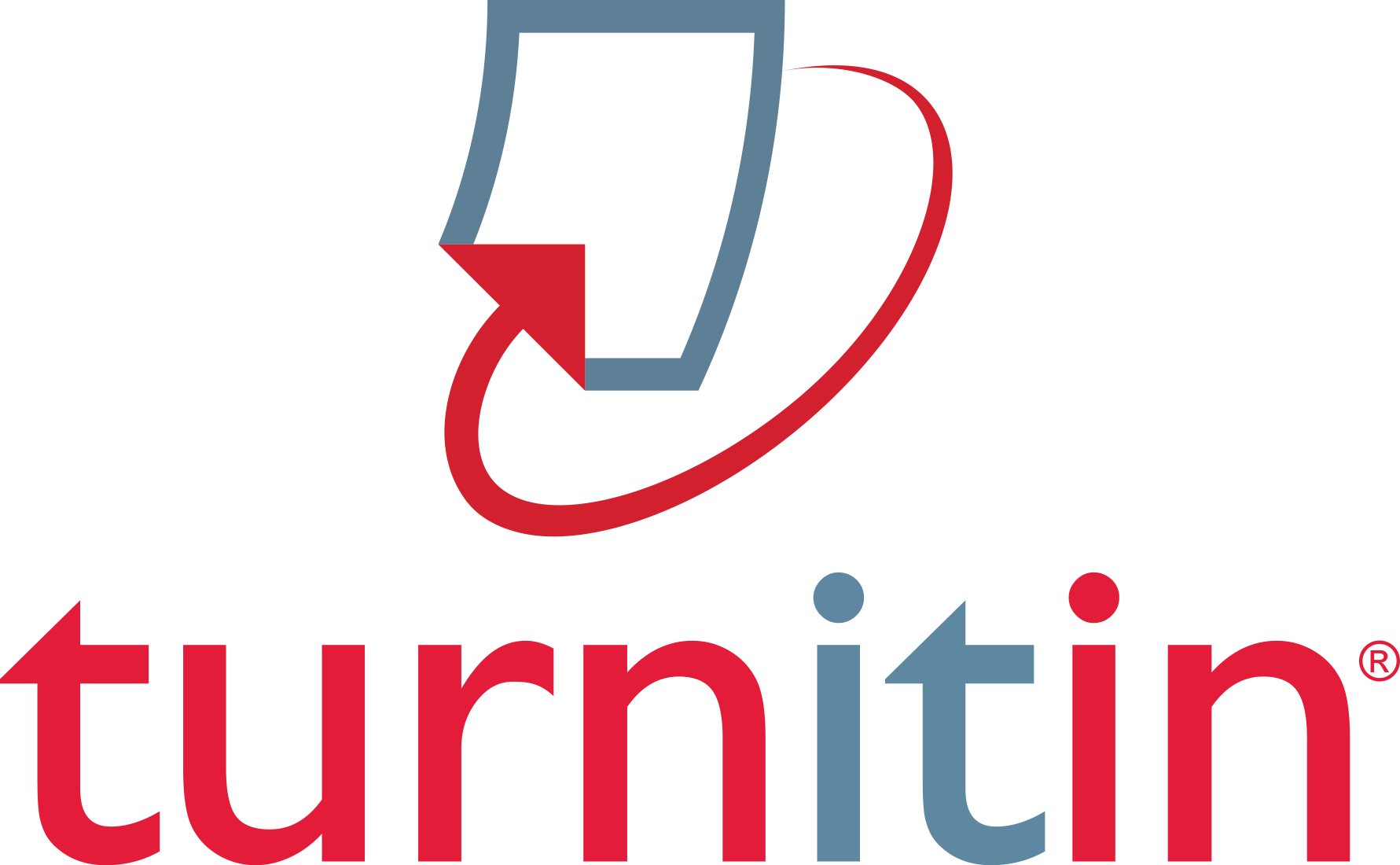A Pengembangan Game Edukasi Berbasis Alat Musik Tradisional Lagia Pada Materi Trigonometri Di Kelas X
Abstract
Mathematics is a universal science that is useful for human life and also underpins the development of modern technology. In general, students find it difficult to learn mathematics due to its abstract nature, which leads to low learning interest. Therefore, contextual learning that is closely related to their daily lives is needed, one of which is ethnomathematics learning. Ethnomathematics learning is integrated with educational games to further increase the appeal of mathematics learning. This study aims to measure the validity, practicality, and effectiveness of the developed educational game. The research uses the 4D model, which includes define, design, development, and disseminate stages. The practicality test was conducted by distributing questionnaires to teachers and students. Meanwhile, the effectiveness test was carried out by giving questionnaires to observers and reviewing students' learning outcomes. The results showed that the developed media was highly valid, with a percentage of 86.7% for the material and 94% for the media; very practical, with teacher and student response percentages of 94.7% and 86.2% respectively; and effective, with an observation result percentage of 91.7%. The learning outcome test showed that 74.28% of students met the Minimum Mastery Criteria. Therefore, the Lagia traditional musical instrument-based educational game is suitable for use in mathematics learning
References
A Dalyanto et al 2021 J. Phys.: Conf. Ser. 1842 012025
Agustina, R & Vahlia, I (2016). Pengembangan Bahan Ajar Berbasis Masalah Pada Mata Kuliah Matematika Ekonomi Prgram Studi Pendidikan Matematika. Aksioma Jurnal Pendidikan Matematika FKIP Universitas Muhammadiyah Metro, 5(2), 152 – 160.
Akdon, & Riduwan. (2013). Rumus dan Data Dalam Analisis Statistika. Bandung: Alfabeta.
Akker, J. Van den. 1999. Principles and Method of Development Research. London. Dlm. Van den Akker, J., Branch, R.M., Gustafson, K., Nieveen, N., & Plomp, T. Design approaches and tools in educational and training. Dordrecht : Kluwer Academic Publisher.
Aminah, I.S, dkk. (2023). Pengembangan Game Edukasi Etnomatematika Tenun Ikat Bandar pada Materi Transformasi. Jurnal Equation Teori dan Penelitian Pendidikan Matematika. Vol. 6 (2). 23-31.
Andromeda, Ellizar, Iryani. 2018. Validitas dan Praktikalitas Modul Laju Reaksi Terintegrasi Eksperimen dan Keterampilan Proses Sains untuk Pembelajaran Kimia di SMA. Jurnal Eksakta Pendidikan, Vol 2,(2)
Anwar, M.C, dkk. Pengembangan Aplikasi Mathy Kids dengan Konsep Etnomatematika Berbasis Android. Jurnal Riset dan Aplikasi Mahapeserta didik Informatika. Vol. 4 (4). 784 – 790.
Apriyani, D. D, & Sirait, E. D. (2023). Pengembangan Game Edukasi Digital dengan Educandy dalam Pembelajaran Matematika Berbasis Model ADDIE. Prosiding Diskusi Panel Nasional Pendidikan Matematika. 253 - 260.
Azwar, Saifudin. 1986. Validitas dan Reliabilitas. Jakarta : Rineka Cipta
Cooper, Donald R and Schindler, Pamela S. 2014. Business Research Methods. Newyork : McGraw
Hendri Adi, N., Fernandes, A.l., & Hermansyah, H (2020). Pengembangan Media Pembelajaran Berbasis Android Pada Mata Kuliah Fisika Dasar. Cetta : Jurnal Ilmu Pendidikan. 3(1).
Hirza, Herna. Berbagai Ragam Kebudayaan Nias. Jurnal Bahas. Vol. XL (91). 84-89
Kamal, M. (2020). Research And Development (R&D) Bahan ajar Bahasa Arab Berbasis Tadribat/Drill Madrasah Aliyah kelas X. Santhet : Jurnal Sejarah, Pendidikan dan Humaniora, 4(1), 10-18.
Ma’sum, dkk. (2018). Game Edukasi Trigonometri Berbasis Web untuk Media Pembelajaran. Jurnal Ilmiah Sains dan Teknologi. Vol. 2 (1). 92 - 105.
National Research Council. 1989. Everybody counts : A Reports to The Nation on The Future of Mathematics Education. Washington, DC : National Academy Press.
Permendikbud No 59 Tahun 2014 Kurikulum 2013 Sekolah Menengah Atas/Madrasah Aliyah
Purwanto. (2009). Evaluasi Hasil Belajar. Surakarta : Pustaka Pelajar
Rahma, & Nurhayati. (2021). Pengembangan Media Interaktif Berbasis Game Edukasi Pada Pembelajaran Matematika. Jurnal Edukasi Matematika dan Sains. Vol. 2 (1).
Rochmad. 2012. Desain Model Pengembangan Perangkat Pembelajaran Matematika. Vol (3). Jurnal Kreano.
Rohmat, A.N., dkk. (2023). Pengembangan Media Pembelajaran Game Edukasi Berbasis Quantum Learning untuk Meningkatkan Minat Belajar Peserta didik. Jurnal Math Education Nusantara. Vol. 6 (1). 85 – 93.
Setiawati, Lina, & Abd.Qohar. (2020). Pengembangan Gamemoti Berbasis Android Pada Materi Trigonomateri untuk Peserta didik SMA Kelas X. Mathematics Paedagogic. Vol. 4 (2). 99 – 108.
Simanjuntak, R.M & Sihombing, D.I. (2020). Eksplorasi Etnomatematika pada Kue Tradisional Suku Batak.
Sudjana. (2005). Metode Statistika. Bandung: Tarsito.
Sugiyono. (2018). Metode Penelitian Kuantitatif. Bandung : Alfabeta.
Widoyoko, S. P. (2009). Evaluasi Program Pembelajaran. Yogyakarta: Pustaka Belajar.
Yuliani, Astin, dkk. (2023). Game Edukasi Petualangan Matematika Media Pembelajaran Digital Matematika pada Materi SD Kelas V. Jurnal Kajian Pendidikan Matematika. Vol. 8 (1). 87 – 98.
Zagoto, Sitasi, dkk. (2023). Budaya Nias. Jawa Barat : CV Jejak

This work is licensed under a Creative Commons Attribution 4.0 International License.
Penulis yang menerbitkan karyanya ke jurnal ini setuju dengan persyaratan berikut:
Penulis menyimpan hak cipta dan memberikan hak penerbitan pertama kepada jurnal, dengan karya yang secara serentak dilisensikan di bawah Lisensi: Creative Commons Attribution - Share Alike 4.0 Internasional License yang memungkinkan orang lain membagikan karya dengan pengakuan penerbitan awal dan kepenulisan karya di jurnal ini.










